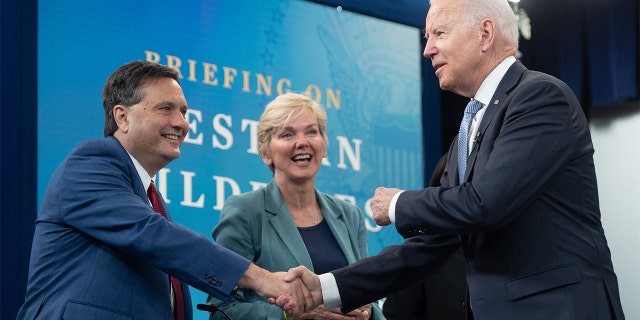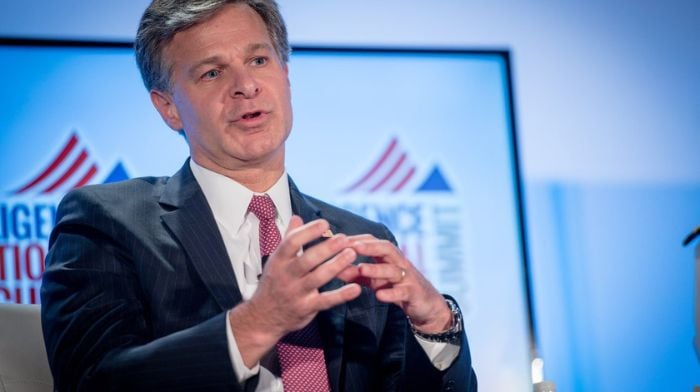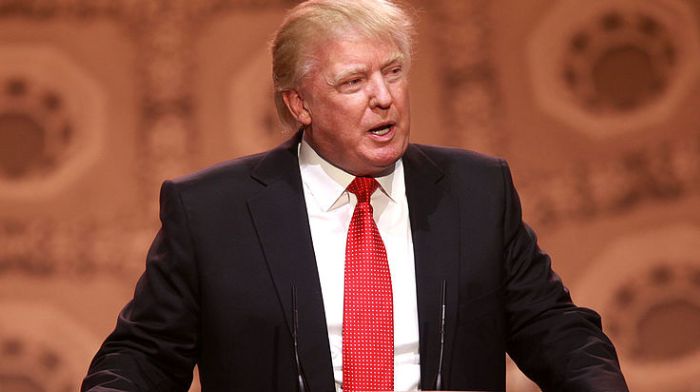The Biden administration informed lawmakers Monday that it will no longer award a $200 million grant to a Chinese-linked energy technology firm in an unexpected reversal.
In a call with congressional staff Monday evening, Department of Energy (DOE) officials said Microvast, a Texas-based maker of technology for electric vehicle batteries, won’t receive the lucrative grant which had been earmarked under the 2021 infrastructure package. Republican lawmakers have for months called on the agency to rescind the grant after its Chinese ties were revealed last year.
“The Department of Energy has finally retreated from sending U.S. taxpayer dollars to Microvast, an electric vehicle battery company with close ties to Communist China,” Senate Energy and Natural Resources Committee Ranking Member John Barrasso, R-Wyo., said in a statement.
“I’m stunned it took the Biden Administration this long to admit the obvious: no company beholden to Communist China should be considered for U.S. government grants or loans,” he added. “The administration should immediately reject other applicants with similar ties. It should also overhaul its grant making process and conduct due diligence before issuing press releases.”
MORE THAN 150 REPUBLICANS UNITE TO CONDEMN BIDEN’S ‘ILL-CONSIDERED’ ELECTRIC VEHICLE PUSH

President Biden shakes hands with former White House chief of staff Ron Klain alongside Energy Secretary Jennifer Granholm in June 2021. (SAUL LOEB/AFP via Getty Images)
The DOE announced in October that Microvast would be one of just 20 American companies to receive a portion of the nearly $3 billion appropriated through the infrastructure bill for a program designed to boost domestic battery manufacturing capabilities. Energy Secretary Jennifer Granholm touted Microvast and the other grant recipients as examples of companies that would boost “American-made” batteries.
However, 69% of Microvast’s revenue was generated in China and just 3% came from the U.S., according to a third quarter financial disclosure it filed with the Securities and Exchange Commission (SEC) last month. In the same filing, the company acknowledged that the Chinese government “exerts substantial influence” over its business activities and “may intervene at any time and with no notice.”
REPUBLICANS DEMAND BIDEN’S ENERGY SECRETARY RETRACT ‘UNSERIOUS’ COMMENTS PRAISING CHINA
Fox News Digital previously reported that while Microvast incorporated in Stafford, Texas, in 2006, it simultaneously incorporated Microvast Power Systems, a subsidiary firm, in Huzhou, China. Four years later, in 2010, Microvast began producing components for lithium batteries in Huzhou where its subsidiary is based.
Microvast Power Systems also signed an agreement in December 2018 with local government entity Huzhou Saiyuan to issue convertible bonds. As part of the arrangement, Microvast pledged its 12.39% equity holding of Microvast Power Systems to Huzhou Saiyuan to facilitate the issuance of convertible bonds.
“The PRC government may exert, at any time and with no notice, substantial interventions and influences over the manner in which we conduct our business activities, which we may not be able to anticipate,” the company stated in a recent SEC filing.

President Biden previously set a goal of ensuring 50% of car purchases are electric by 2030. His administration has since scrambled to boost domestic electric vehicle battery production, the vast majority of which currently takes place in China. (Stephen Maturen/Getty Images | David Paul Morris/Bloomberg via Getty Images)
The SEC placed Microvast on a watchlist in April 2022 over financial auditing issues related to its foreign ties, an action that could result in the company being delisted.
Yang Wu, Microvast’s CEO, chairman and founder, attended Southwest Petroleum University in Chengdu, China.
The bipartisan infrastructure legislation, through which Microvast received the grant, implores the DOE not to issue grants to companies that “use battery material supplied by or originating from a foreign entity of concern” or companies “subject to the jurisdiction or direction” of China.
Still, the DOE had defended the grant for months, saying the company was, in fact, American and that the grant would ultimately allow Microvast to build manufacturing capabilities on American soil.
CLICK HERE TO GET THE FOX NEWS APP
“This is a win for taxpayers and American businesses,” House Science, Space and Technology Committee Chairman Frank Lucas, R-Okla., said Monday evening. “On no account should our tax dollars be funding a company with ‘substantial’ ties to the Chinese Communist Party. These funds are intended to strengthen America’s battery production and supply chain, not to tighten China’s stranglehold on these supplies.”
“I’m pleased with DOE’s decision, but incredibly frustrated that it took the Department six months and multiple letters from our Committee to come to such an obvious conclusion,” Lucas continued. “We’ll continue to hold the Administration accountable for its funding decisions and ensure that American taxpayer dollars are protected from exploitation by the CCP.”
The DOE and Microvast didn’t immediately respond to requests for comment.

























































